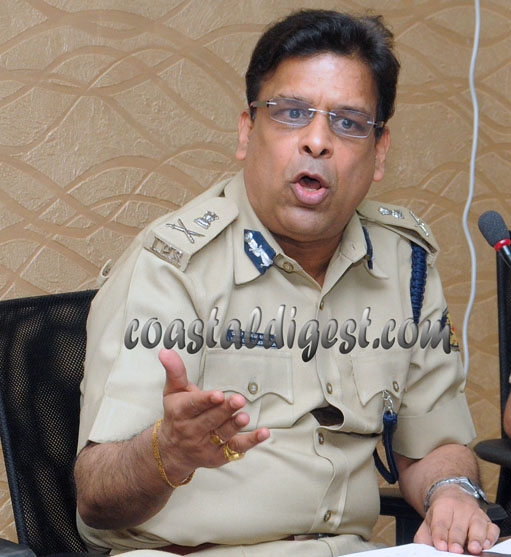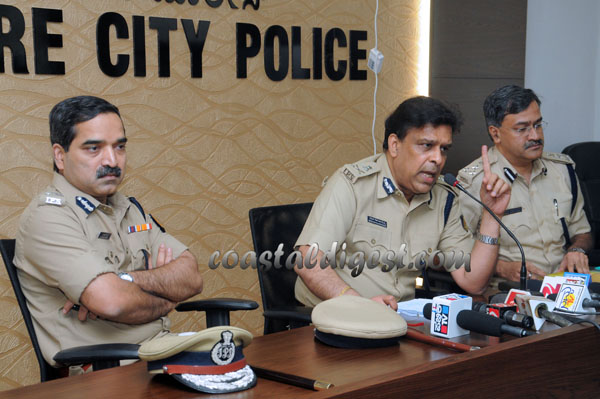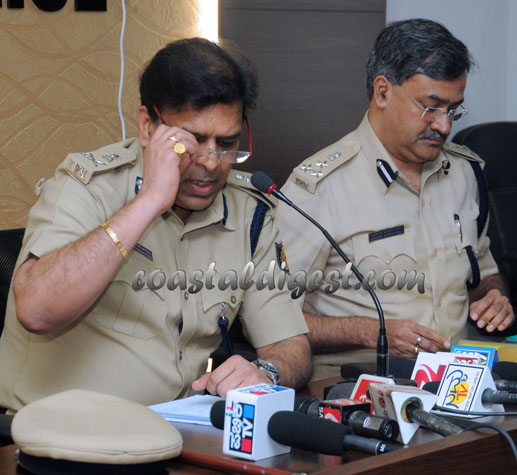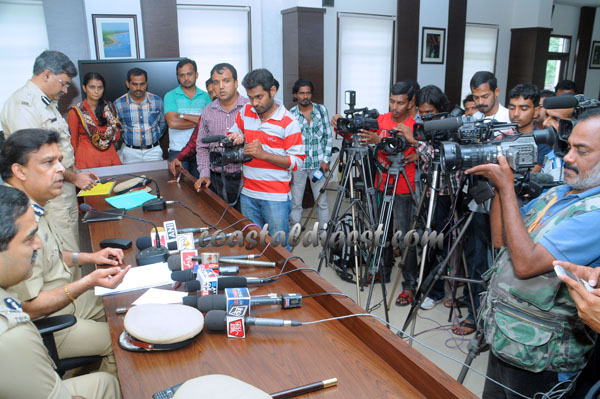
Mangalore, July 29: The role of media in the Mangalore homestay party attack is being looked into with all seriousness, said Bipin Gopalkrishna, ADGP (Law and Order).
Addressing media persons on Sunday at a press meet at the Police Commissioner's office in Mangalore after inspecting the homestay site where the assault on young boys and girls took place at Padil, Mr. Gopalkrishna said that a section of the police are also looking into the role played by a section of the media in instigating the attacks.
Stating that reporters of two Kannada TV news channels are under the scanner, Mr. Gopalkrishna said that mediapersons should have informed the police if they knew about the scheduled assault in advance. However, the ADGP said that the TV channels will also be given a chance to explain their stance.
He also said that FIRs have been filed against two media persons belonging to two different channels.
The top cop said that eight persons by name Rajesh, Taranath (s/o Gangadhar), Subhash Padil, Ganesh, Venugopal, Sandeep Shetty, Sharath and Tharanath (s/o Babu) have been arrested after last evening's incident. The arrested belong to Hindu Jagarana Vedike, he said. “When we questioned Subhash Padil, he admitted that he is a Hindu Jagarana Vedike leader but maintained that he and his group had gone there only to protest but eventually some of his boys got over enthusiastic”, Mr. Gopalakrishna said.
The police department is serious about the incident, he said, stating that cases of assault, outraging modesty of a girl, dacoity, being part of unlawful assembly, prevention of destruction of property act have been booked against the arrested. The assaulters even tried to steal Rs.10,000 and snatch a girl's gold chain, he said. About 15-20 persons were party to the assault and the other 6-7 persons will also be arrested soon, the ADGP said.
The complaint has been filed by Vijay Kumar, the event manager who organized the party. The status of the homestay's legality is also being looked at, he said. However, the homestay is said to have been functioning without license.
The ADGP denied that Mangalore had become a frequent victim of moral policing assaults. “The earlier incident of pub attack took place in 2009 and this one has taken place now in 2012. I don't think there is a frequent occurrence or a pattern of any sort here”, he said.
The top cop also denied that police had not done their duty to the best of their ability. “As soon as we got the message we have approached the spot. Yes due to travel time, by the time we got there the assault had taken place but our main priority was to protect the students”, he said. All students who were at the receiving end of the assault were locals, he said.
All precautionary measures to maintain law and order in the city have been taken. About 200 additional police personnel from other parts of the state have been deployed in the city. Prohibitory orders will be in force for three days, the ADGP said.
Seemanth Kumar Singh, Mangalore Police Commissioner, said that the police department is also verifying whether assaulters of 2009 pub attack had taken part in the homestay attack too.
Related:
Embarrassed by 'Hindutva molestation' BJP govt. rushes top cop to Mangalore
'Custodians of Hindu culture' barge into party; molest girls
Did TV channel crew enjoy molestation of helpless girls by Hindutva activists?
Hindutva activists taken into custody for violating Section 144









Comments
I was able to find good info from your articles.
Review my blog ????
???? ??? ?????? ???????: https://elqsar9.wordpress.com/2014/11/01/%d8%b4%d8%b1%d9%83%d8%a9-%d8%a…
Add new comment